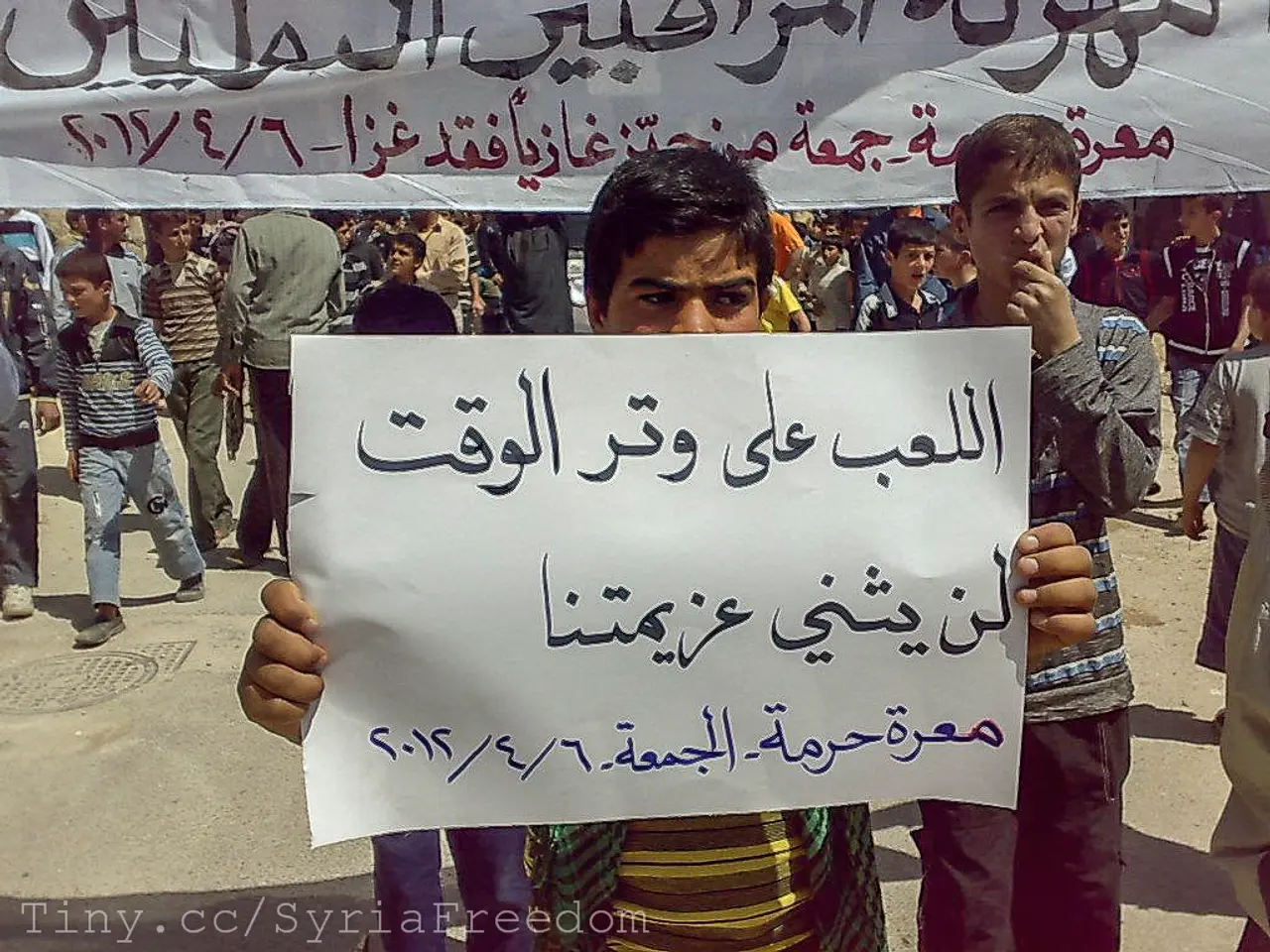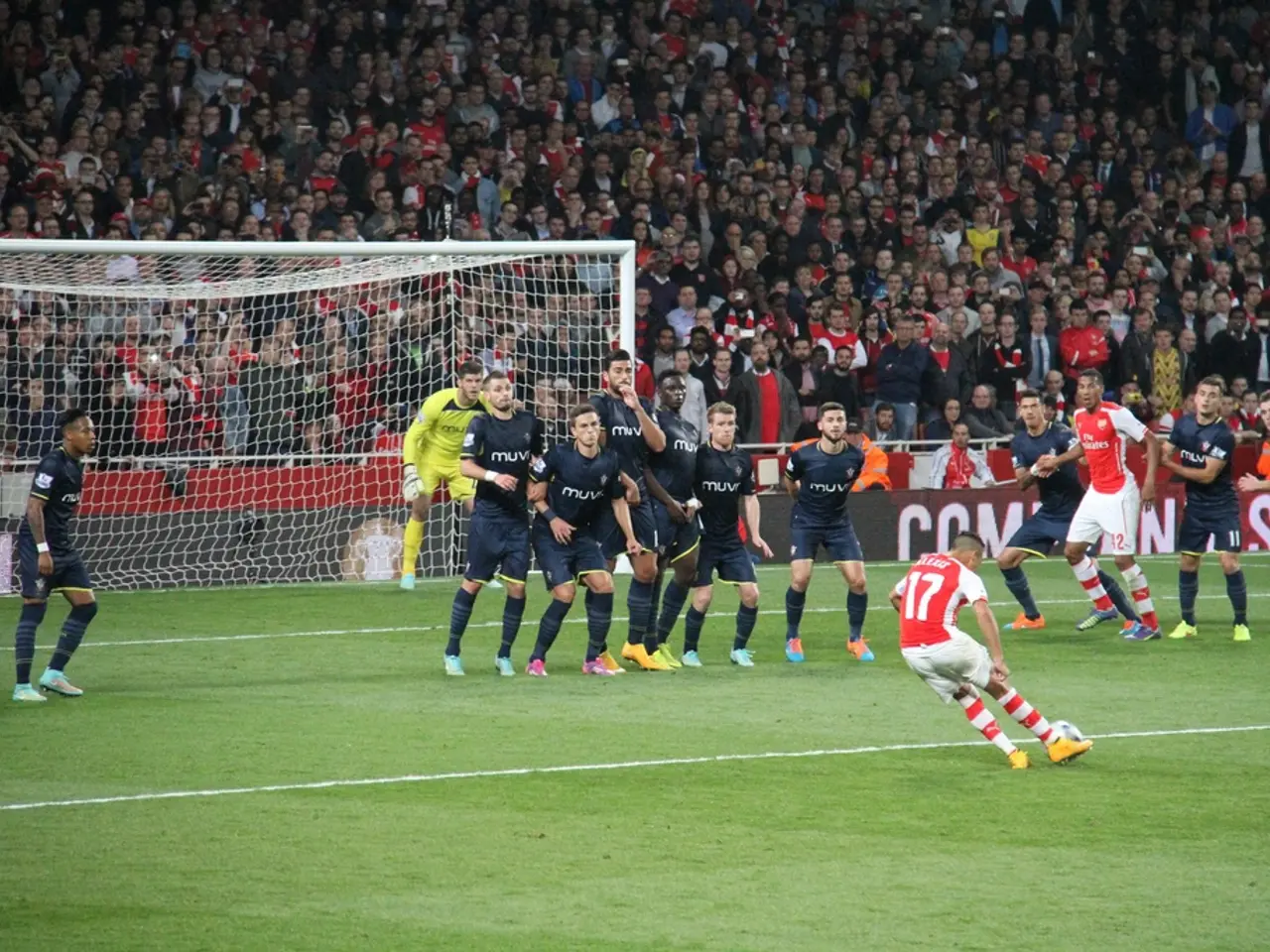Large-scale demonstrations in opposition to the Gaza conflict
The ongoing conflict between Israel and Hamas continues to escalate, with the planned capture of Gaza City by Israeli forces casting a shadow over diplomatic efforts to end the war.
Israel's security cabinet, led by Prime Minister Netanyahu, has outlined five key principles for a comprehensive agreement to end the war:
- Disarm Hamas as a military and governmental entity.
- Release all hostages held by Hamas.
- Demilitarize the Gaza Strip, removing all weapons and military infrastructure.
- Establish Israeli overriding security control over Gaza.
- Create a non-Israeli, peaceful civilian administration in Gaza—meaning an administration that does not promote terrorism or pay terrorists, and does not launch attacks against Israel.
The Israel Defense Forces are preparing for an expanded military operation aimed at taking full control of Gaza City to achieve these objectives. However, international concern over the humanitarian toll and the challenge of balancing military goals with ceasefire and peace negotiations remains.
Preliminary talks involving Egypt, Qatar, and the US are attempting to revive ceasefire proposals and negotiate a comprehensive agreement. These negotiations face significant challenges, as the military escalation in Gaza suggests. The proposed ceasefire talks include ideas for a partial hostage release followed by a comprehensive deal, but these remain tentative as of mid-August 2025.
The UN Security Council is set to discuss Israel's war plans at an emergency meeting today. The offensive could exacerbate the humanitarian situation, endanger the lives of hostages, and lead to massive displacement of civilians.
The trigger for the Gaza war was the attack by Hamas and other Palestinian terrorist organizations on Israel on October 7, 2023, in which about 1,200 people were killed and more than 250 were taken as hostages to Gaza. Since then, more than 61,000 people have been killed, according to the health authority controlled by Hamas in Gaza, although this number does not distinguish between civilians and fighters.
The capture of Gaza City, believed to house some of the Israeli hostages, has drawn worldwide criticism, including from Germany, Britain, Italy, New Zealand, and Australia. The relatives of the hostages fear that the capture of the city would mean a death sentence for their loved ones, as Israeli estimates suggest there are still 20 living hostages in the hands of Hamas.
Israel hopes that increased military pressure will bring Hamas back to the negotiating table on its own terms, but doubts have been raised about the effectiveness of this strategy. Israeli Prime Minister Benjamin Netanyahu has accused Germany of rewarding Hamas with its decision to halt arms exports, expressing his disappointment.
As the conflict continues, speakers have called on soldiers not to participate in the escalation of the war and for Israel's opposition, as well as representatives from business, unions, and science, to paralyse the country. Military analysts predict that the operation to capture the city could last weeks or months. After the war, an alternative civilian government is to be established in the Gaza Strip.
[1] UN Secretary-General António Guterres has warned of a "dangerous escalation". [2] The Forum of Hostages' Relatives has demanded a comprehensive agreement to end the war in Israel. [3] Qatar and the USA are reportedly working on a new proposal to end the war, expected to be presented to the warring parties within the next two weeks. [4] German Chancellor Friedrich Merz has announced a halt on exports of arms goods that could be used in the Gaza war. [5] A video conference of the foreign policy experts of the CDU/CSU parliamentary group is planned for today to discuss current foreign policy developments.
- The ongoing war-and-conflicts between Israel and Hamas, particularly the planned capture of Gaza City by Israeli forces, is a significant point of discussion in general-news and politics, as international concerns over humanitarian issues and peace negotiations continue to arise.
- As the UN Security Council discusses Israel's war plans, various parties such as Qatar, the USA, and Germany are actively involved in diplomatic efforts to end the war, proposing new agreements and truce proposals, with preliminary talks currently underway.








